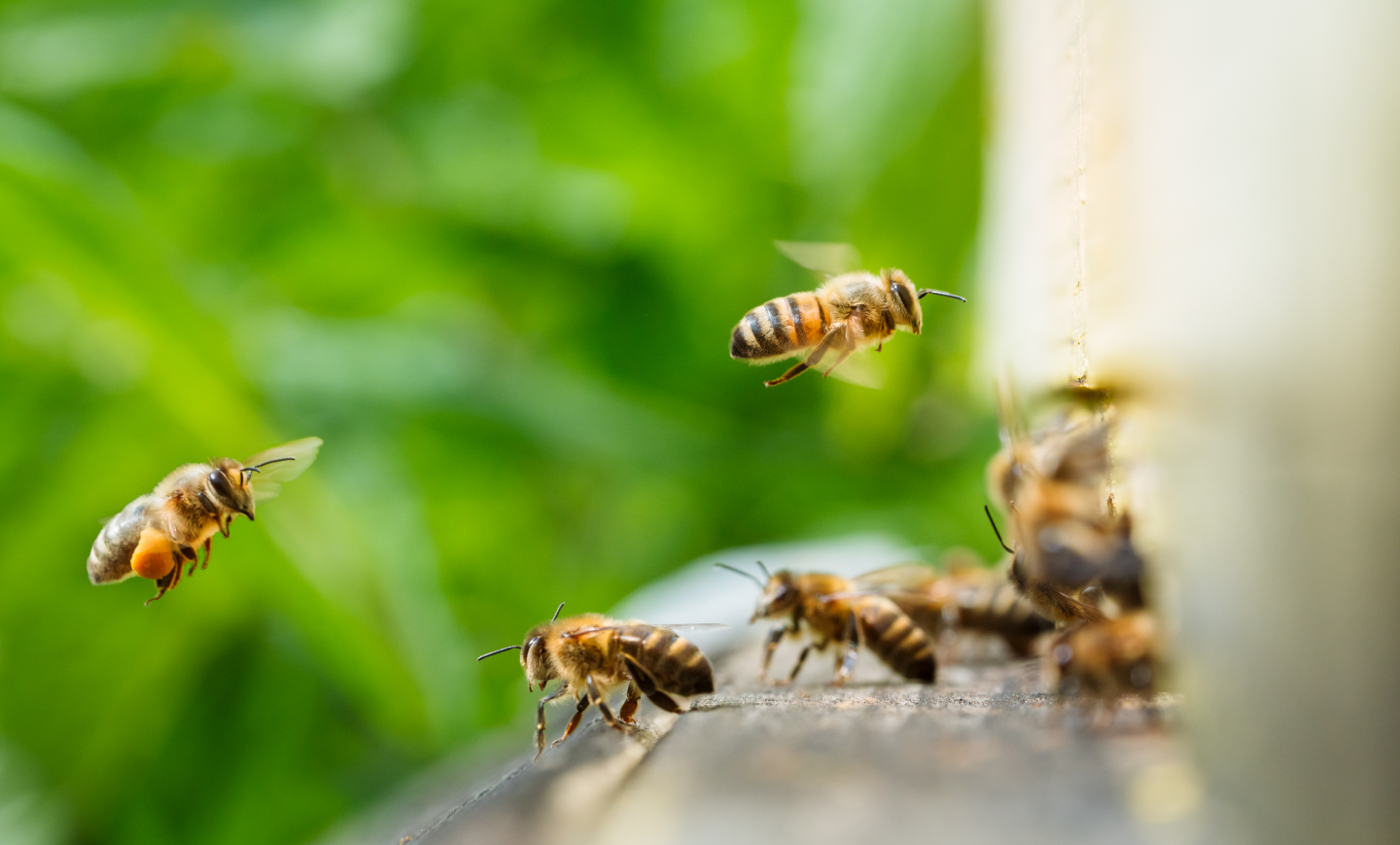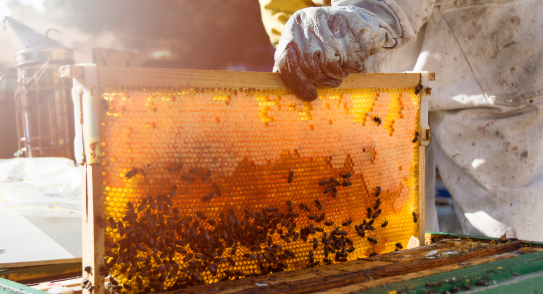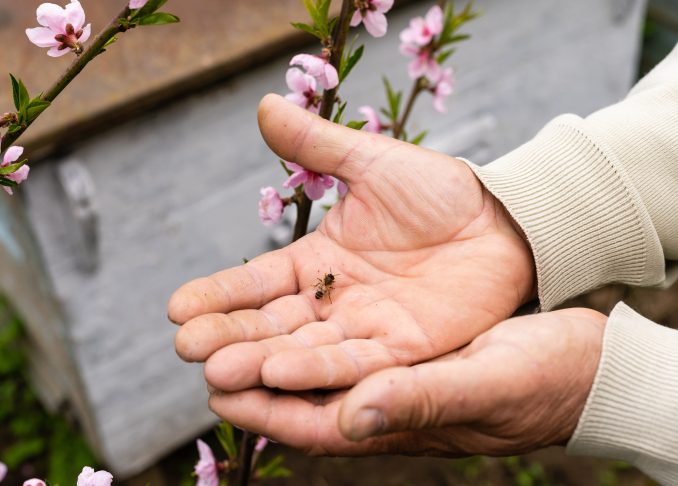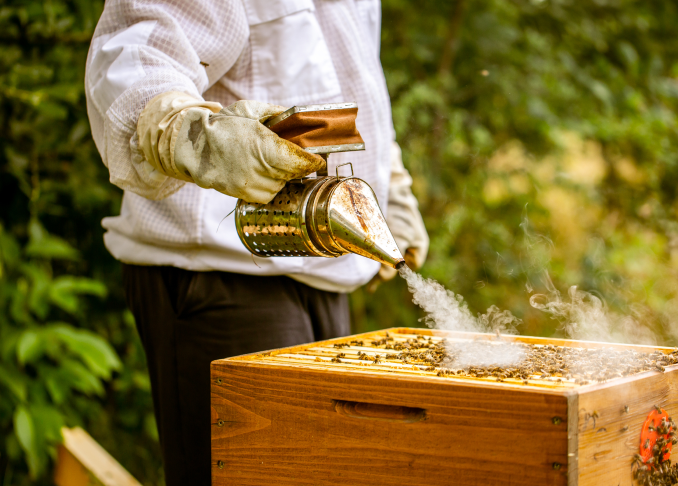
Bees
Bee-lieve it or not, bees may be more important than you realize!
Fact #1
You can personally thank a bee for every one in three bites of the food you eat.
Fact #2
There are roughly one billion honey bees in Canada and the U.S. alone—almost triple the number of people.
Fact #3
Seventy out of the top 100 human food crops — which supply about 90 percent of the world’s nutrition — are pollinated by bees.
What do bees do?
Honey bees, both wild and domestic, perform about 80% of all pollination worldwide. A single bee colony can pollinate 300 million flowers each day. Fruits, nuts, and vegetables are all pollinated by bees.
Typically, a bee hive or colony will decline by 5-10% over the winter and replace those lost bees in the spring. In a bad year, a bee colony might lose 15-20% of its bees. But now in the U.S. alone, the number of bee colonies per hectare has declined by 90% since 1962!


Why do we need bees?
We need bees to fertilize many of our crops. Bees also keep our environment healthy and provide habitats for countless other species. Without them the world would be a different place.
What is causing bees to become so endangered?

In short, humans! Bees are facing extinction and that’s something that will affect every single one of us living on planet Earth.
Bees are dying from a variety of factors including pesticides, drought, habitat destruction, nutrition deficit, air pollution, global warming, and more. Wild bee habitats shrink every year as industrial agribusiness converts grasslands and forested land into mono-culture farms, which are then contaminated with pesticides.
How can you help?
Starting with small things like adding window boxes and including native plants in your garden offers forage for bees. Small actions amongst many can have serious impact.
A few other ideas to keep in mind:
By restoring bee populations and restoring the general health of bees, pollination will increase to improve ecological agriculture, which results in improved crop yields.
By employing ecological farming techniques, which take advantage of the natural ecosystem services, water filtration, pollination, oxygen production, and disease and pest control, we can create a healthier environment for all.
Bring Tending Your Yard, Tending The Earth Concepts to Your Home
Learn more about how you can implement similar changes to your property and join us in helping to save this place we call home, the Earth.
Learn MoreDid you know?

Why are beekeepers always puffing smoke around beehives?
Smoke makes bees think that there’s a forest fire coming, so they go into the core of the hive and gorge themselves with honey. It also masks the pheromones of other bees, it sort of distracts them and it makes it a little harder for them to sting.







